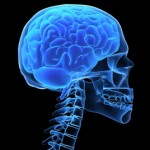The New York Times had a great article about advances in treatment of individuals with Traumatic Brain Injuries today. The number of American Soliders with TBI’s is only going to increase and new breakthroughs in care are a wonderful thing to see! At Dobson we are constantly searching for the most cutting edge care we can find for our clients who have suffered a traumatic brain injury, this includes keeping up on the trends of care that are coming to the mainstream such as “neuroplasticity” that the New York Times article discusses.

A Concussion is a Brain Injury
What is a Concussion?
Concussions are a type of traumatic brain injury (TBI) caused by a blow or jolt to the head. The injury can range from mild to severe and can disrupt the way the brain normally works.
An athlete does not need to lose consciousness to sustain a concussion. You cannot see a concussion, but you might notice some of the symptoms right away. Other symptoms can show up days or weeks after the injury. It is best to see a health care professional if you think you might have a concussion. An undiagnosed concussion can affect your abilities at school or work and in everyday activities.
Signs and Symptoms
- Nausea
- Dizziness or balance problems
- Double or fuzzy vision
- Sensitivity to light or noise
- Headache
- Feeling sluggish or tired
- Feeling foggy or groggy
- Confusion
- Trouble concentrating
- Trouble remembering
If You’ve Had a Concussion
- Never ignore a bump to the head
- Tell your coach or teammates
- Ask to be taken out of the game
- Pay attention to physical changes
- Watch out for thinking problems
- Talk to your parents or teachers about the troubles you are having
- See a health care professional
- Get plenty of rest
- Return to practice and play only after your brain is healed and your health care professional says it’s okay
When will I get better?
Your concussion symptoms can begin to decrease in the first few weeks/months depending on the severity of your injury. You may notice more difficulty in some situations than others. You might get tired after reading, studying or watching TV. It may be harder to do two things at once, such as talking on the phone or working on the computer.
Take things slow and be patient with yourself. Do not participate in contact sports until your health care professional says its okay.
Source: Brain Injury Association
First things first…Important to remember…
- A person with a brain injury is a person first
- No two brain injuries are exactly the same
- The effects of any brain injury are complex and vary greatly with each person
- The effects of any brain injury depend on things like cause, location of the brain injury and severity of the injury
Let’s talk about the “lobes” or sections of the brain. There are four: Frontal, Temporal, Parietal and Occipital. This will be very basic information about each of the lobes of the brain. Some behaviors/deficits may be explained by knowing which section of the brain is injured, and by understanding the basic functions of those lobes.

Frontal Lobe: Situated at the front of the skull, the “forehead region”, our frontal lobes are known as our emotional control center and are also, “home to our personality”. The frontal lobe is associated with motor skills, reasoning, higher level awareness/cognition and expressive language. This lobe receives information from other lobes of the brain and utilizes it to carry out body movements.
Temporal Lobes: Located on either side of the skull, above the ear, the temporal lobes are associated with visual and auditory (hearing) input. They provide the organization of the input. Persons with injury to the temporal lobe may have difficulty placing words or pictures into categories. They are highly associated with memory skills. Left temporal injury may result in impaired memory for verbal material, while right temporal injury may result in the inability to recall non verbal material, i.e. music, drawings. Severe damage to the temporal lobe may also increase unfavorable sexual behavior.
Parietal Lobe: The parietal lobe is the middle section of the brain, located near the back and top of the head. This lobe is responsible for processing tactile sensory information such as touch, pain, pressure, etc. An important section of the brain is located in the parietal lobe and is essential to the processing of the body’s senses.
Occipital Lobe: The occipital lobe is located in the back portion of the brain. It is associated with vision. An important section of this lobe of the brain is the primary visual cortex. This area receives and interprets information from the retinas of the eyes. Damage to this lobe can cause a variety of visual disturbances and even blindness.
Again, no two brain injuries are exactly alike. Every person will respond and recover at a different rate. This is just meant to help you to understand a little more on why the deficit you may be seeing with your brain injured loved one, is present.
